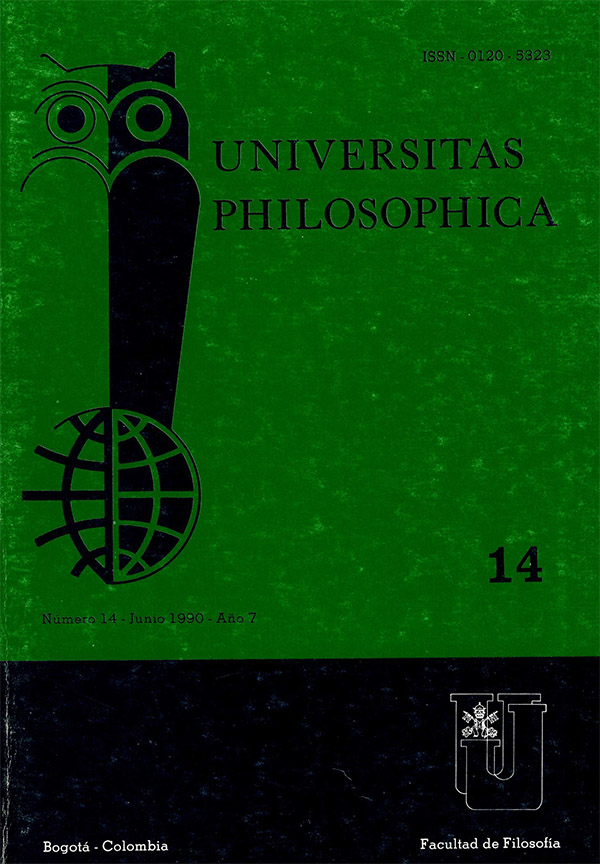Abstract
Jürgen Habermas es, sin duda, una de las figuras más destacadas en el panorama filosófico contemporáneo y sus aportes al campo de la epistemología, el debate en torno al positivismo, el papel protagónico del lenguaje, el futuro del materialismo histórico y el capitalismo han dejado una profunda huella en las discusiones filosóficas actuales. Sin duda, una de las herramientas conceptuales que le ha permitido llevar a cabo sus análisis es el concepto de interacción y su posterior evolución en el concepto de acción comunicativa.
Trataremos, pues, de dar cuenta del contenido de este concepto y de insinuar su ulterior evolución en el concepto de acción comunicativa. Para ello, veremos los antecedentes del concepto de interacción en la tradición filosófica y concretamente en Hegel y Marx. Luego, analizaremos sus consecuencias en el estudio del capitalismo tardío y en la crítica de la ciencia, para terminar en el concepto de acción comunicativa.
This journal is registered under a Creative Commons Attribution 4.0 International Public License. Thus, this work may be reproduced, distributed, and publicly shared in digital format, as long as the names of the authors and Pontificia Universidad Javeriana are acknowledged. Others are allowed to quote, adapt, transform, auto-archive, republish, and create based on this material, for any purpose (even commercial ones), provided the authorship is duly acknowledged, a link to the original work is provided, and it is specified if changes have been made. Pontificia Universidad Javeriana does not hold the rights of published works and the authors are solely responsible for the contents of their works; they keep the moral, intellectual, privacy, and publicity rights.
Approving the intervention of the work (review, copy-editing, translation, layout) and the following outreach, are granted through an use license and not through an assignment of rights. This means the journal and Pontificia Universidad Javeriana cannot be held responsible for any ethical malpractice by the authors. As a consequence of the protection granted by the use license, the journal is not required to publish recantations or modify information already published, unless the errata stems from the editorial management process. Publishing contents in this journal does not generate royalties for contributors.


